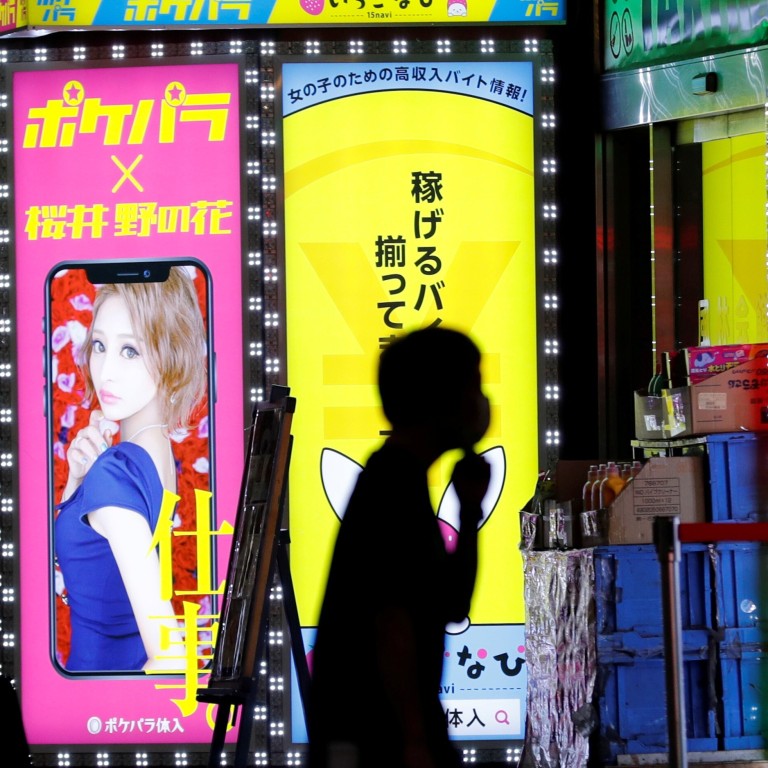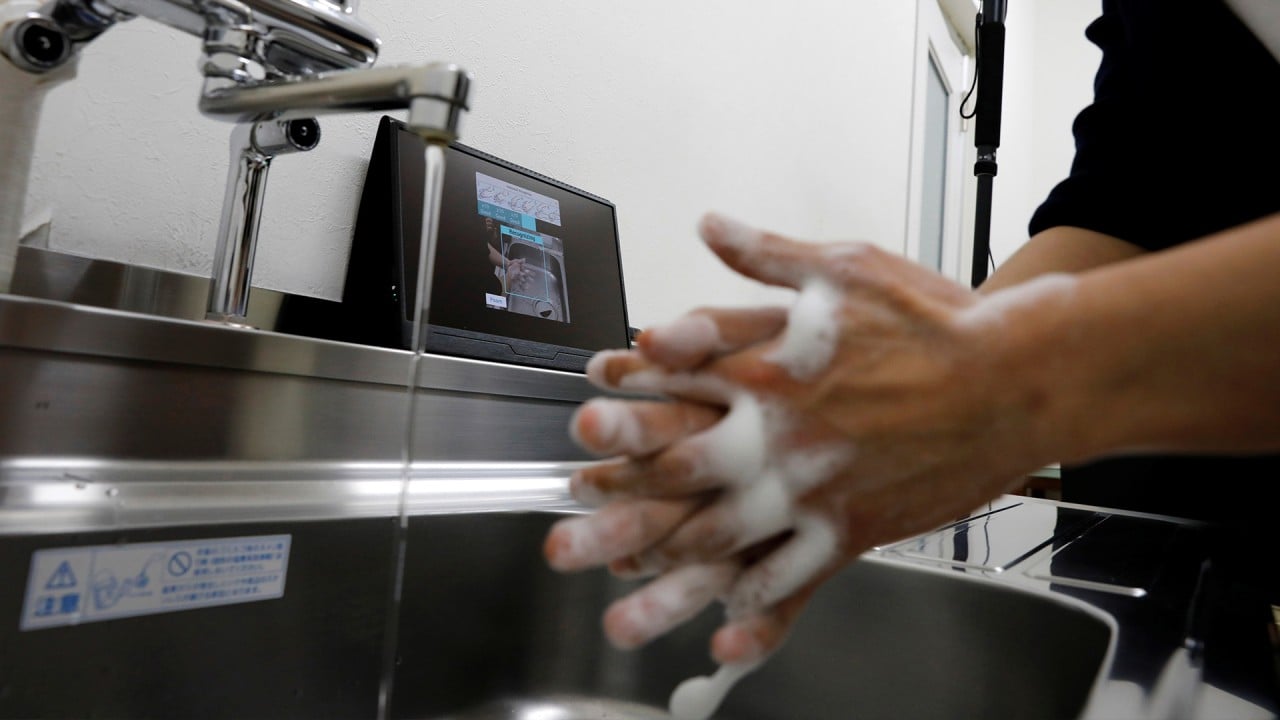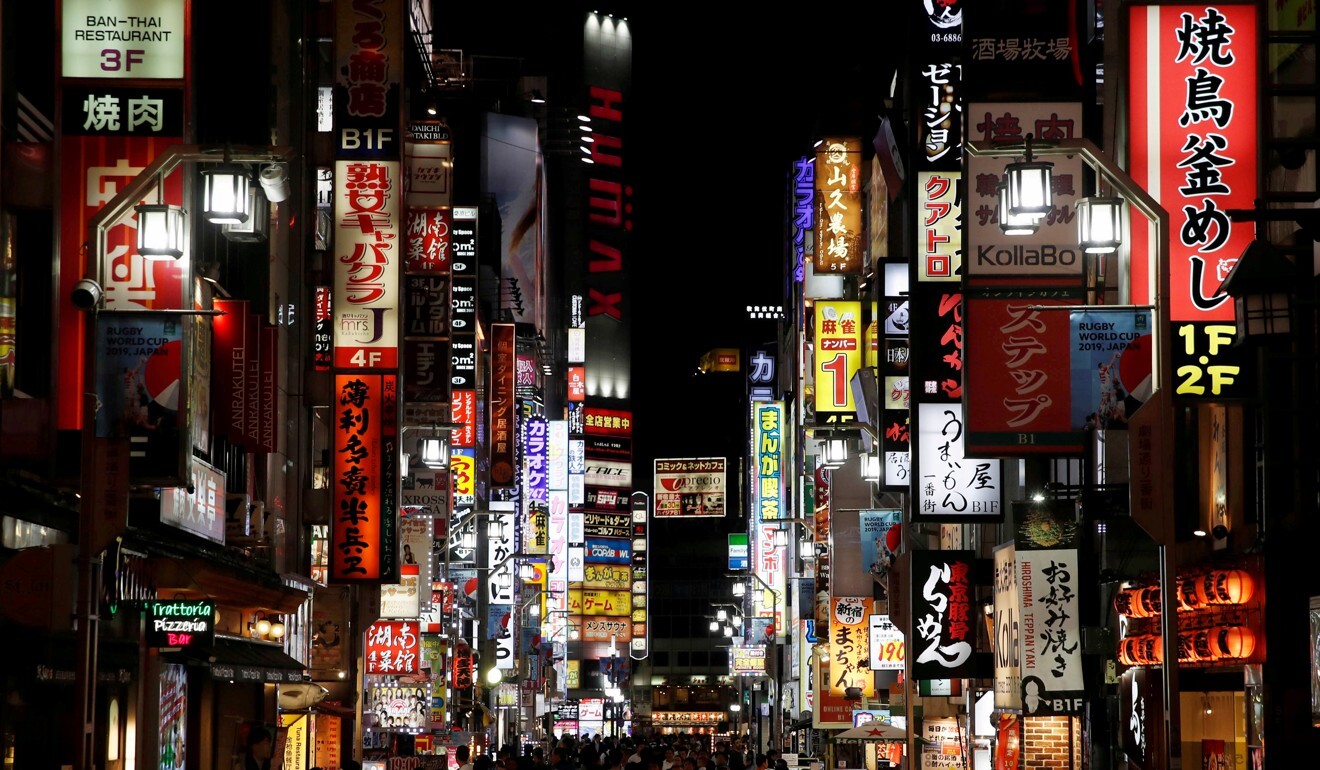
Japan’s young people can’t resist the nightlife – or Covid-19
- A spike in cases in red-light districts in Tokyo and Osaka has been traced back to people in their 20s and 30s whom an expert says ‘just want to have fun’
- The government is cracking down on venues not abiding with social distancing, even as it proceeds with a plan to boost domestic travel
According to epidemiology experts, this cavalier attitude is why the government has little choice but to crack down on venues that are not abiding by recommendations on social distancing and safety for customers as well as staff – though this response may be too late, they warn.
“I think there is a certain section of the population who are in their 20s and 30s who just want to do what they want to do and when they want to do it,” said Makoto Watanabe, a professor of media and communications at Hokkaido Bunkyo University.
Two US Marine bases in Japan’s Okinawa locked down after dozens contract coronavirus
“They may have followed the rules on social distancing and not going out at the beginning of the crisis, but that was weeks ago and they have grown bored of being at home. They just want to have fun,” he said, adding that this subset of the population was also more likely to consider itself invulnerable to the disease.
Tokyo reported 143 additional cases of the virus on Tuesday, after enduring a spike above 200 cases for four of the past six days. Those figures include an all-time high of 243 new infections on Friday, most of which were traced back to the city’s red-light district, and involve workers and customers in clubs and bars who are in their 20s and 30s.

01:28
Japanese AI checks workers for proper handwashing amid coronavirus pandemic
“The government has tried very hard to find a balance between protecting the health of the people and protecting businesses, but from these new cases and the worrying new spread outside the cities, I don’t think it is working any more,” said Yoko Tsukamoto, a professor of infection control at the Health Sciences University of Hokkaido.
“The city has issued guidelines on what venues need to do, but not enough of these places are following those recommendations. And now I do not believe they have many options but to force those that are not complying to close.”
How the coronavirus may change Japan for good
Tokyo has introduced a compensation scheme for venues that agreed to close down, providing Ұ500,000 (US$4,660) for two weeks, but many have stayed open due to demand for their services.
In an echo of what is happening in the capital, more than 30 per cent of the 209 new cases in Osaka, Japan’s second city, between June 14 and July 11 were among young people linked to the Minami nightlife district. Of the total, 78 per cent were between the ages of 18 and 39, and a testing centre has been set up in the area.
The Osaka government has implemented a “yellow alert” and called on the public to avoid bars, cabaret clubs, host clubs and other establishments that have not been given the seal of approval by the city for their precautions.
Authorities have also confirmed 36 more coronavirus infections at Camp Hansen on Okinawa, taking the tally at United States military bases on the island to 136.
The outbreak emerged at the weekend, provoking the anger of the prefecture’s governor, who has called into question the US military’s virus prevention measures.

While the evidence suggests younger people may be less at risk of developing a full-blown case of Covid-19, they can act as carriers and spread it to people around them, including those who are elderly or with underlying health conditions that put them in the at-risk category.
They are also choosing to ignore research that suggests that the virus may cause longer-term conditions, even in the young, added Watanabe from Hokkaido Bunkyo University.
Besides the link to Tokyo’s red-light districts, there are signs Covid-19 is gaining a broader foothold in Japan.
Around 850 people who attended a stage show at the Shinjuku Theatre Moliere in the first week of July are being tested after 37 members of the cast and audience had contracted the virus as of Monday. The organisers of the event have apologised and insisted they had done their best to prevent infections.
Japanese man slashed woman’s car tyres outside supermarket then came to her rescue
Japan’s expert panel on the pandemic has warned that the virus is spreading beyond Tokyo, but the government is pushing ahead with its “Go To Travel” campaign, which will offer discounts and subsidies for domestic travel. The launch of the scheme has been brought forward from August to July 22.
Mieko Yoshimura, the governor of Yamagata Prefecture, on Tuesday said she had “doubts” about promoting travel from urban areas of the country, and said a decision on opening up should be left in the hands of local authorities.
Soichiro Miyashita, the mayor of Mutsu City in Aomori Prefecture, this week said the national government would be held responsible if the travel campaign caused a rise in infections in his community.

